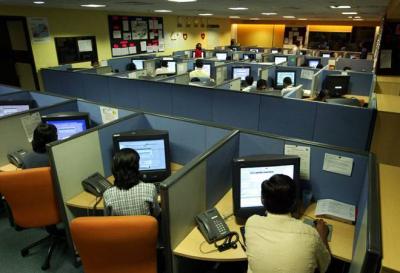Bengaluru startup offers three-day work week offer with salary of 80%
By Lokmat English Desk | Published: October 6, 2021 06:54 PM2021-10-06T18:54:36+5:302021-10-06T19:01:12+5:30

A Bangalore startup is trying a more dramatic solution: a three-day work week.

Fintech company Slice is offering new hires a three-day week with salary at 80% of the going market rate.

This is a win-win approach that frees the workers to pursue other passions or interests -- or other gigs -- while still locking in a steady pay and benefits from Slice, said Rajan Bajaj, the company’s founder.

“This is the future of work,” Bajaj, 28, said in a phone interview. “People don’t want to be tied down to a job.” Global investors are pouring billions of dollars into India’s tech startups, putting entrepreneurs under pressure to ramp up teams.

A massive talent crunch has ensued as IT outsourcers, Silicon Valley giants, global retailers and Wall Street banks’ technology centers vie for engineering and product talent alongside hundreds of fast-growing startups.

Slice is betting that its approach will make it stand apart from the competition. The company has 450 employees and wants to recruit 1,000 engineers and product managers in the next three years.

“It’s the best of both worlds,” Bajaj said. “Workers can get salary and full benefits working a three-day week, and spend the rest of their time chasing a startup dream, looking for a co-founder or pursuing a non-work passion.”

The move toward shorter weeks has been underway for at least a century. In 1926, Henry Ford adopted a five-day work week in place of the typical six days, after experiments showed productivity wouldn’t suffer as a result. Companies and countries have experimented with four-day weeks for years without widespread adoption.

Proponents of shorter weeks now point to studies showing a boost in employee productivity and well-being, prompting countries such as Ireland and Iceland to try them out. Technology behemoth Amazon.com Inc. piloted a four-day week for select employees in 2018, and even China is trying to rein in its excessive working hours.

Just as in Silicon Valley, the Indian startup industry’s work-centered culture is leaving some engineers disenchanted while some are milking the opportunity for all its worth.

Engineers’ salaries have tripled in the past three years, Bajaj said. Bidding wars are common and workers are known to ghost startups after multiple rounds of pay negotiations.

Founders joke on social media about advertising on matchmaking and food delivery apps to obtain workers. Such is the hiring bonanza that Bhavish Aggarwal, founder of ride-hailing startup Ola and electric-car startup Ola Electric Mobility Pvt., tweeted recently in half jest that he was thinking of outsourcing work to a cheaper destination -- the San Francisco Bay Area.























